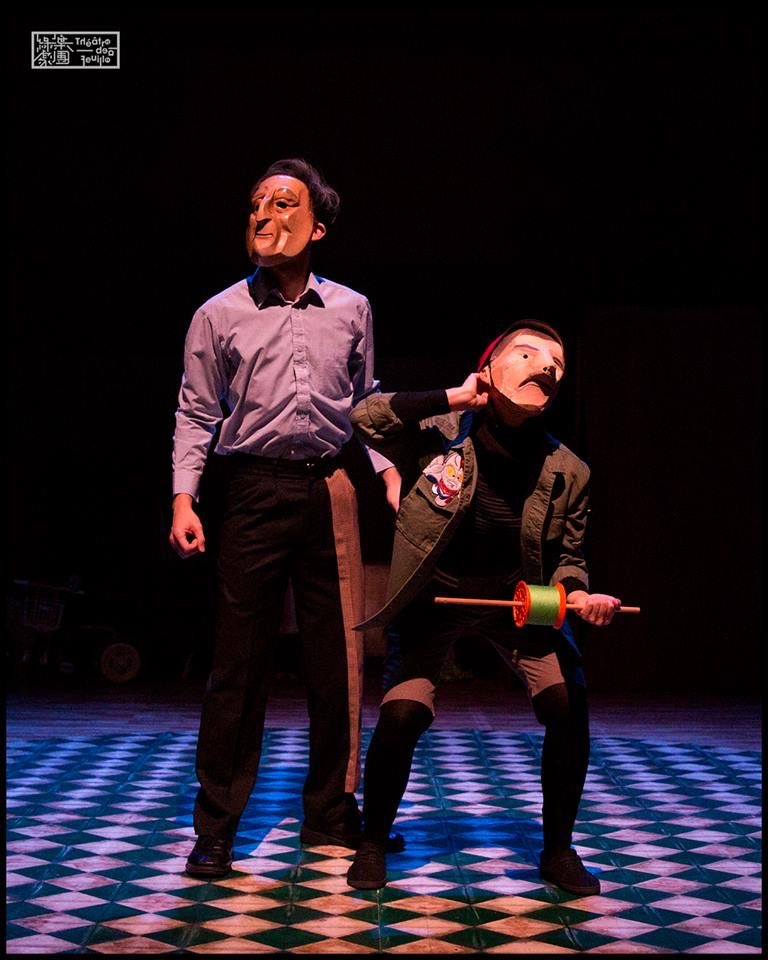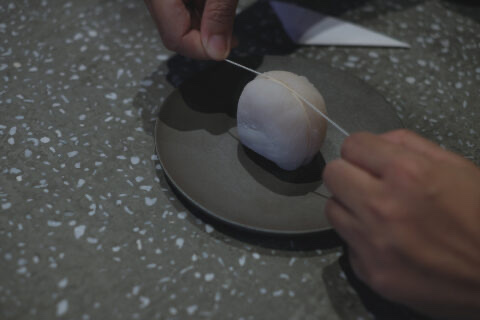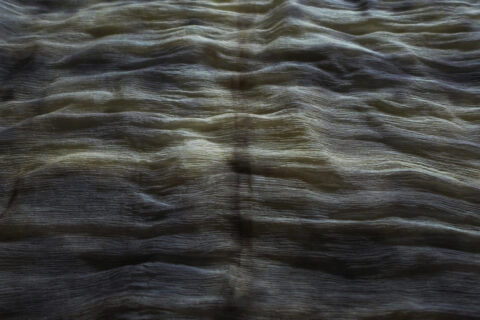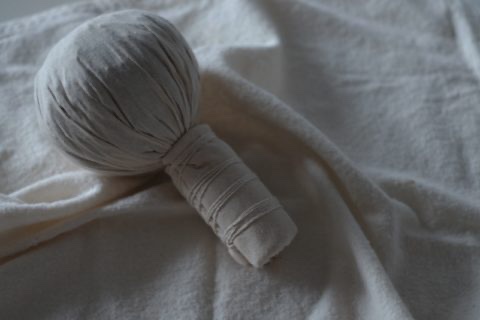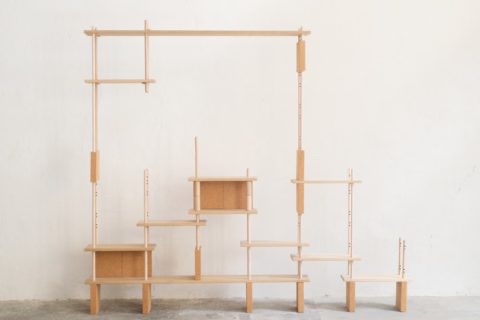
劇場總有一種電影或電視劇無法取代的魅力,演員和觀眾在同一空間裡經歷同一個故事,是沒有屏幕阻隔的親近,相比通過鏡頭觀看,一覽無遺的劇場反而帶來沒有空間限制的想像。
由綠葉劇團演出的面具劇《爸爸》,同時也是形體劇,演員戴上面具,專注地以身體動作去帶領觀眾的眼晴,而不是依賴表情和說話。這種表演形式塑造了更大的想像和思考空間,讓觀眾自行對號聯想身邊的人和事及代入情節,每一個人都可以有不同理解、感受。
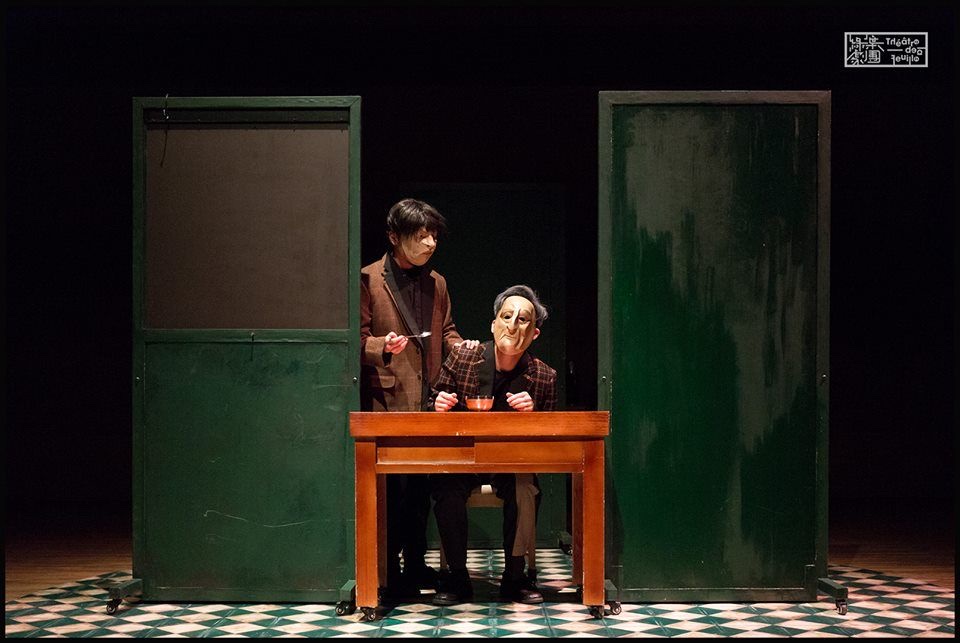
「今天,他的兒子和兒媳婦牽著他的手,送他第一天到養老院。他看著他的孩子,他們轉身,彷彿鬆了一口氣。」劇中患有腦退化症的爸爸與兒子道別後,被送進養老院的他就如坐上時光機,回憶不斷在他的眼前重溫,他拿起聽筒致電給兒子,有時候忘記了號碼,打對了又沒有接通。最後在院友幫助下,混亂中逃出,一時間又不知道自己該去哪兒。
整套劇最讓人欣賞的必定是演員以精彩細膩的肢體動作演活不同角色,還有劇中對「門」的運用。每一道門都為劇場開啟了無限的空間,透過不斷移動、組合和開關,帶來意味深長的意象。劇場就像一道門,打開了一個又一個我們遺忘了的時代和記憶。
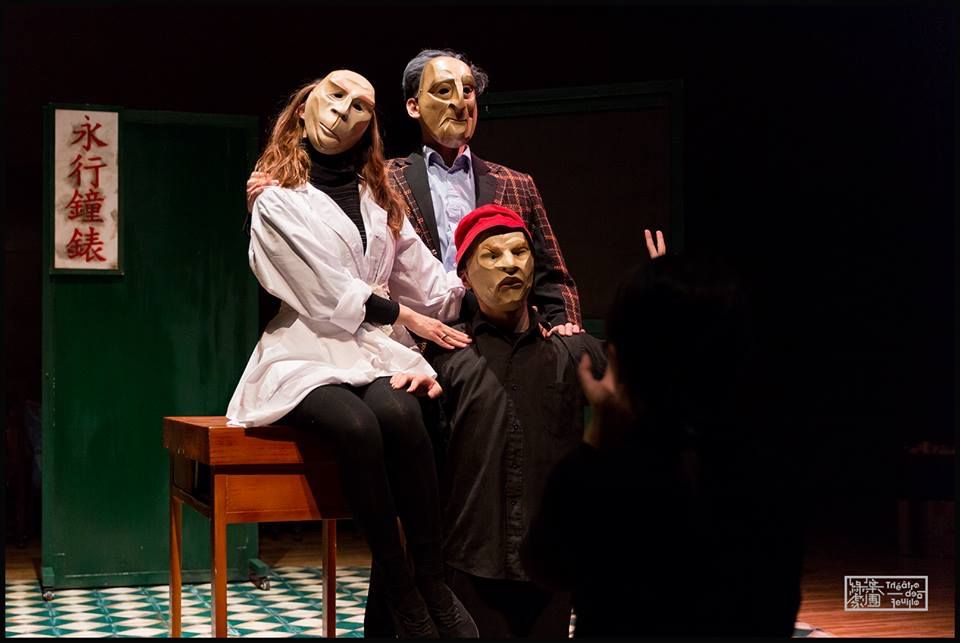
Theatre has a kind of charm that makes it so different from cinema or television. The performers and the audience are physically situated in the same confined space to experience the same story without the boundary of the screen. This setup allows the audience to imagine without restrictions.
Papa by Théâtre de la Feuille doubles up as a mask theatre and a physical theatre — with their faces covered by the masks, the performers are dedicated to leading the audience by using body movement without the aid of facial expression or speech. This form of theatre provides a greater room for imagination and pondering. Audience are invited to identify with the characters or the scenes, they can even see them as someone they know, therefore, everyone can have their very unique experience and interpretation.
“Today, his son and daughter-in-law hand-in-hand, together with him, as they arrived at the elderly’s home. He looked at them longingly; as they turned away firmly with a sigh of relief.” This is the moment when Papa, the character with dementia, says goodbye to his son. In the retirement home, Papa feels like having hopped on a time machine seeing the flashback of his previous memories. Although he wants to call his son, he either forgets his number or there is simply no one picking up the phone. Finally, with the help of other residents in the retirement home, he manages to escape during a chaotic situation. However, once he is outside, he has no idea where to go next.
The most impressive part of the play is certainly the heartful and skillful movements of the performers which make the characters so vividly alive. The imagery of door is as well not to be overlooked. Every door opens up a new possibility of the world of theatre; through moving, assembling, opening and closing the door, the crew creates various realms for the audience to dwell on. After all theatre itself is as well a door, which opens up eras and memories that are long forgotten.
